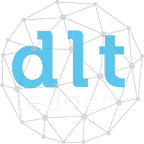How is Blockchain Transforming the Higher Education Sector?
One of the most overhyped technologies of current times is Blockchain — A distributed ledger technology that has found traction across various industries. It has indeed become one of the most sought-after technologies and has transformed the way organizations conduct their business and interact with the end-users. One of the sectors where Blockchain has made a significant impact is the higher education sector wherein the distributed ledger technology is challenging the very origin of the centralized governance structure of the education industry.
Let’s understand how Blockchain technology can transform the higher education sector through verified documents, history of student performance, course management, secure sharing of data, tokenized rewards, and much more:
Enhanced Record-Keeping: One of the most promising use cases of Blockchain in the education sector includes maintaining substantiated certificates, degrees, diplomas, and other academic credentials. When such credentials are uploaded on Blockchain, it becomes almost impossible to forge these documents due to the immutable nature of Blockchain. Consequently, the need for a third-party or intermediary to provide an attested or certified copy of these documents is eliminated, which also reduces the administrative burden on educational institutions.
Create New Market for Digital Assets: It is extremely taxing to process student payment, which involves parents, students, agencies granting the scholarship, banks, educational institutions, and government, etc. It is expected that soon, cryptocurrencies can be used for making the payment. This will eliminate the transaction fee that is charged to students making payments using their credit cards.
Academic Records of Students: Blockchain does more than providing verifiable transcripts and degrees. It can record all the information about a student’s entire academic year. This might include courses undertaken by the student, the course curriculum, student performance on exams, assignments, etc. Professors and leave their remarks, as well as a detailed assessment of a student’s abilities and accomplishments. Future employees can access these academic profiles to assess the candidates.
Safeguarding Digital Content: Higher Education institutions face the problem of plagiarism, and unlawful use of patent material. Blockchain’s secure nature can help professors, researchers, etc to retain and protect the copyrights of the materials created by them. In other words, researchers, lecturers can create a Blockchain containing all their work including tutorials, syllabi, evaluation patterns, etc, and share it in a controlled way. In such a type of decentralized system, content creators not just get recognition for their work but are also getting paid when others use their work.
Digital Badges: Digital badges have gained popularity for showcasing skills and achievement. When paired with Blockchain, it can act as a powerful tool that students can use to showcase the achievement they might have been acclaimed for, while being in college. These badges can be shared on social media platforms or with future employers in a secure manner.
Quick Wrap-up:
The impact of Blockchain on the education sector is immense. From how it can be used for improving learning processes and encouraging research to facilitating academic records, the possibilities offered by this innovative technology are endless. So, if you wish to benefit from the technological wave of higher education then make sure you leverage tailored Blockchain Solution from a software development company.
#dltledger is a blockchain technology solution company in the region with our regional offices in USA, UK, France, Germany, Belgium, Holland, Dubai, South Africa, Singapore, China, India, Indonesia, Thailand.
